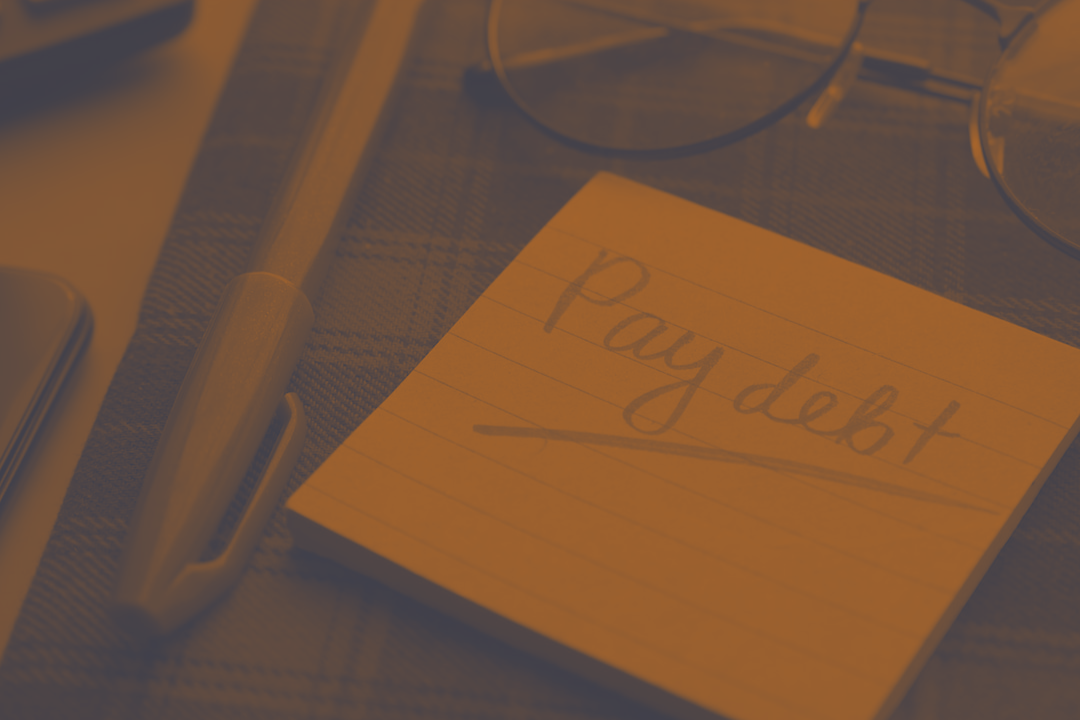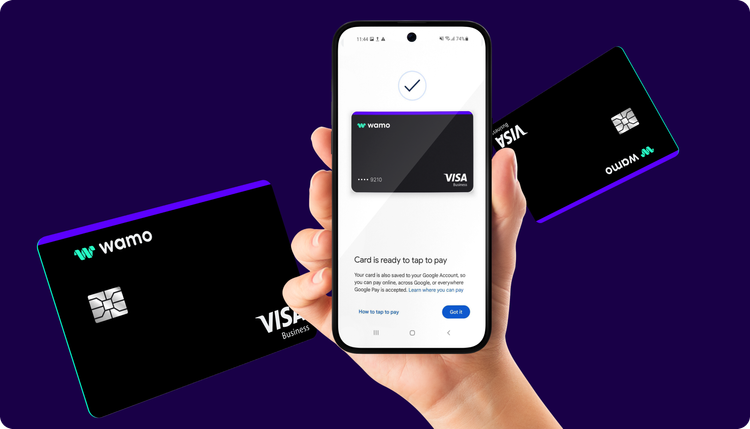Corporate credit cards have the potential to become your biggest financial asset. But with its increased importance, they can also open doors to cyber threats and frauds and can create lasting damage to your business.
According to a Crime survey in England and Wales, there were 2.3 million financial frauds and 1.4 million consumer and retail frauds.
If you become a victim of this type of fraud, you can end up paying unauthorised charges and receiving large bills before you’re able to take action. Fraud like this can also increase your credit card balance and end up damaging your hard-earned credit score in no time.
But, the good news is that there are a number of ways to avoid such scams and keep your business protected.
In this blog post, we'll talk about some more common types of credit card fraud that small businesses face and provide you tips to keep you and your business safe.

Types of credit card fraud faced by small businesses
There are some sneaky types of credit card fraud that small businesses should be aware of. While they can knock on your door in very convincing disguises, they all share a common goal: to corrupt your system and steal your hard-earned money as quickly as possible before you find out. Here are some of the most common types of credit card fraud:
Card-not-present fraud
Basically, card-not-present fraud is a common scam used by fraudsters to make online purchases through stolen cards.
As a small business, you are most likely to fall victim to CNP fraud if you don't have a streamlined security process in place - the one that always verifies the identity of a person making the purchase.
So, with an unprotected card, you are making it easy for fraudsters to steal your cash! To protect yourself from CNP fraud, make sure you implement measures like two-factor authentication or ask customers to provide additional identity information before completing a purchase.
Chargeback fraud
Chargeback fraud often shows up when a customer disputes a legitimate charge on their credit card.
Usually, they buy your goods and services in order to make a claim that they "never" made the purchase - they might also come up with reasons like the goods or services were not as described. Fraud like this will mostly show a repeated pattern of such requests.
While these chargebacks can be a legitimate means of resolving issues between businesses and customers, fraudsters aim to exploit this process by making false claims - just to get their refund! So, the suggestion here is that you keep an accurate and up-to-date record of all the transactions and detail a clear and transparent refund policy!
Skimming
Skimmers attach a sneaky device to a card reader and steal your credit card information from a magnetic strip on the back of your card. This usually happens at ATMs, gas stations, retail stores etc. A smart way to protect yourself from skimming is checking and inspecting your card readers regularly - notice if there are any signs of tampering, such as loose or mismatched parts. The best way is to make sure you are using reputable card processing services.
Phishing scams
Here the fraudsters show up as legitimate companies or financial institutions and try tricking people into revealing sensitive information, such as credit card details.
In general, fraudsters will send you emails or text messages that ask the recipient to click on a link or provide personal information.
The best way to protect your business from this type of fraud is to educate your employees and keep yourself informed about warning signs of phishing - such as clicking on misspelt URLs, accepting suspicious email addresses and requests for personal information.
Fake orders
Fake order scams can be of different types. We have discussed the one where fraudsters send emails or text messages under the phishing scams section.
In another version of the fake order scam, your business might receive an invoice that looks official for products that you never ordered or received. The invoices you receive could be for office supplies or other goods. It's always a smart choice to be cautious and double-check before paying any such invoice to avoid falling victim to this type of fraud.

Ticket scams
While this is much more likely to happen in your personal life than in your business life - it could happen that you pay for clients or employee tickets with the business credit card. So a small warning that ticket scams are a very common type of fraud to be aware of. If you’re scrolling through websites and see discounts for tickets - especially if they’re super cheap - be extra careful about double-checking the seller.
In this case, fraudsters show up as legitimate resellers but they’ve likely used a stolen credit card to buy tickets from the real ticket company. They then try selling these tickets at a discount and of course ask you to make an online transfer.
What can potentially happen next is that the ticket company catches on and reverses the transaction, leaving you without your tickets and your money!
So, be careful when buying tickets from private sellers on social media or resale sites. Stick to trusted sources and always pay using a familiar payment method and service. .
If you do get scammed in this way, report it to the authorities immediately to help prevent it happening to someone else.
Why small businesses are more vulnerable to credit card fraud
While large businesses can also get hit by fraud, it's more likely that a fraudster would target a small business or startup. There could be several reasons for this, some common ones are:
- Limited resources: As a small business, you might not have enough resources or liquidity to invest in fraud prevention and detection measures. This makes you more vulnerable to fraud!
- Lack of expertise: Small business owners often lack the expertise or knowledge to identify or prevent fraud. This can end up leaving them vulnerable to scams.
- Inadequate security measures: Small businesses may not have adequate security measures in place to protect against fraud. This leaves small businesses on the risky ground and more susceptible to credit card fraud.
- Less bargaining power: If you have just started out, you probably carry less bargaining power with payment processing companies - this can result in higher fees and charges for chargebacks and other fraud-related costs so you might be less likely to take action.
It's important for small business owners to be aware of the risks of fraud and take steps to prevent and detect fraudulent activity. By investing in fraud prevention and detection measures, small businesses can protect their customer's sensitive information and their own financial wellbeing.
What happens when a small business accepts a fraudulent charge
When a small business accepts a fraudulent charge, it can have a number of consequences. Here are a few things that can happen:
- Financial losses: If you accept a fraudulent charge, you may be responsible for reimbursing the customer for the fraudulent transaction. This can lead to a significant financial burden on you and often huge losses as well.
- Chargeback fees: Often when a customer disputes the fraudulent charge, your business will be responsible for chargeback fees. This can end up eating a big chunk of your profits.
- Reputational damage: This is probably a big loss for any business! If you are hit by a fraud incident, you are more likely to lose your reputation among your customers. This is because customers are often worried about their personal information being stolen or misused.
- Legal liability: In some cases, small businesses may be held legally liable for accepting fraudulent charges. This can result in legal fees and other expenses.
It's important for small business owners to keep their eyes open to prevent and detect fraudulent activity, and to respond quickly if fraud does occur. By investing in fraud prevention and detection measures, small businesses can protect their customer's sensitive information and their own financial well-being. Let's talk about some tips that can help you to prevent and detect fraudulent activity.
Things to do to reduce credit card fraud
Credit card fraud can have a significant impact on small businesses, leading to financial losses, reputational damage, and even legal liability. Fortunately, there are a number of things that small business owners in the UK can do to reduce the risk of credit card fraud:
Use EMV-enabled payment terminals
EMV is short for Europay, Mastercard and Visa. Using EMV chip technology comes in really handy in providing an extra layer of security against counterfeit and stolen cards. Basically, it is a global standard for credit card payments and EMV terminals with a microchip on a credit card rather than just the magnetic stripe. So, this instantly makes it more difficult for scammers to clone credit card information.
While this can involve some upfront costs for small business owners, investing in EMV-enabled terminals can provide your customers with the comfort of using their cards without stressing over their security and enabling you to save potential costs of fraud and chargebacks. Implement strong cybersecurity measures
Implementing strong cybersecurity measures
“Implementing cyber security” may sound like it can cost you an arm and a leg, but think about it this way - it can help you secure all your important business data and protect you from the potential risks of getting bankrupt!
So when we say implement strong cybersecurity measures, it means taking relevant steps to secure your computer systems and networks from unauthorised access and other cyber threats. Make sure to shield your computer and devices with up-to-date security systems such as firewalls, antivirus software, and data encryption. This will help prevent malware infections and other types of cyberattacks that could compromise your sensitive data. Plus, make sure to secure your data through strong passwords, monitor your systems regularly and stay informed about new types of cyber threats and ways to prevent them.
Conduct regular employee training
Your employees are the backbone of your business and technically help you to run it successfully! That's why it is important to invest in their training as well, especially when it comes to preventing fraud. By providing regular training sessions, you can educate your employees about the different types of fraud and how to spot and report any suspicious activity.
For example, you can equip them with the knowledge of identifying phishing scams so they’re better able to detect scammers and know what to do about it! Staff should also be trained in managing sensitive customer information and implementing security measures to protect it.
Often, one or more of the following signs can be red flags for a suspicious transaction:
- Customer rushing transactions
- Customer refusing to use EMV reader
- The hologram seems damaged or the magnetic strip seems missing
- Any distraction technique attempting to get a staff member to focus elsewhere during a payment.
Increase transaction safety
When it comes to preventing fraud, increased transaction safety and prevention tools like address verification systems, CVVs and fraud scoring systems will make you feel much more confident about your business security. Basically, these tools allow you to limit the amount of information you collect from customers and only store sensitive data if it is absolutely necessary.
How to check credit card fraud in your business
Now that you know some ways to protect your company from credit card fraud, you might be curious about how to check for fraudulent activity in your business. Here are some steps you can take:
- If you notice anything suspicious, be on the lookout for unusual patterns of transactions - such as multiple transactions with different credit cards, unusually large transactions, or transactions from high-risk countries. It's more likely for these types of transactions to be fraudulent.
- If your customer's information such as billing and shipping addresses does not match the information on the file with credit card issuers, it may be a sign that you need to look a little more closely and ask some questions. Make sure to take immediate action!
- If a customer's history has a thread of declined transactions, it could be a red flag. Either the card is stolen by the customer or could be a fraudulent card.
- Keep an eye on the customer itself. If they are overly anxious or rushing through the purchase, it is probably a heads-up for you to hold back and rethink the transaction.
By taking these steps, you can help to reduce the risk of credit card fraud at your business and protect your customers' sensitive information. If you suspect that credit card fraud has occurred, contact the credit card issuer and law enforcement immediately.
Things to do if you suspect fraud
Despite taking all the measures, sometimes you might suspect fraud and would want to take immediate action, here's what to do:
- Contact the credit card company/provider: As soon as you suspect fraudulent activity, contact the credit card company or your financial service provider instantly. This will help you to investigate and take steps to avoid such situations in the future. The longer your card remains valid, the more your money is exposed to fraudulent spending.
- Review your transaction records: Build a routine of going through your transaction record history to check for any suspicious activity. If you see something unusual or out of place, it could be a sign of fraud.
- Update software and password: Generally, it's always smart to keep your software organised and up to date. But when your credit card transactions seem suspicious, make sure you update your passwords and software - either way, this should be a regular practice.
- Gather evidence: If you notice any suspicious transactions, make sure to gather relevant evidence such as receipts, transaction records, or any other documentation that could help you identify the source of the fraud.
- Contact law enforcement: It's also a smart idea to contact your law enforcement agency. They can help you to navigate through the problem and identify appropriate action.
- Recheck your security measures: Once you have come across a suspicious activity and addressed the issue, take a step back and review your security protocol. Figure out if there are any gaps in your system and take steps to rectify them.
- File a report: If you have become a victim of fraud, it's suggested to file a report with the credit reporting bureaus. Also, make sure that you have to freeze your account to prevent scammers from making transactions from your credit accounts. If the fraud continues after the first signs of suspicious activity, it is also advised to file a police report.
- Contact your insurer: This totally depends on your insurer and coverage. Credit card companies will usually have policies in place to protect customers against fraudulent transactions, and most will refund any unauthorised charges made on a customer's account.
Despite the best of intentions, there's no magic bullet single thing to do that will guarantee your business is never defrauded. But there are precautions you can take to keep fraud exposure to a minimum. Staying informed and aware will help you protect your business and your customers. It's worth noting that you should always partner with the right payment processor to protect your business from credit card fraud. Your smart decisions will not only help you to gain the trust of your customers but also let you stay on top of your finances - which is essential for running a successful business!
The final tip we want to give you for your own business is to use debit cards instead! At wamo we offer multiple, high-spend limit Visa debit cards - both virtual and physical. Depending on your subscription package your debit cards are free with free delivery to anywhere in Europe. The days of having a single corporate card to hand round the office are long gone. wamo is team-friendly, meaning that its designed to enable you to allocate both accounts and debit cards to every member of your team and to manage them all from your wamo dashboard on your wamo app or web app. You can freeze and unfreeze any debit card connected to your business account (which includes all the sub-accounts you’ve created for your team) and, in the case of virtual debit cards you can also delete them whenever you like. Download wamo business from all the usual places and get you and your team sorted with business debit cards that you can trust.
Stay safe out there!
Want to learn more about making smart financial decisions for your small business? Follow us for regular tips on growing your small business and staying ahead in the financial game as a new entrepreneur in the UK.








